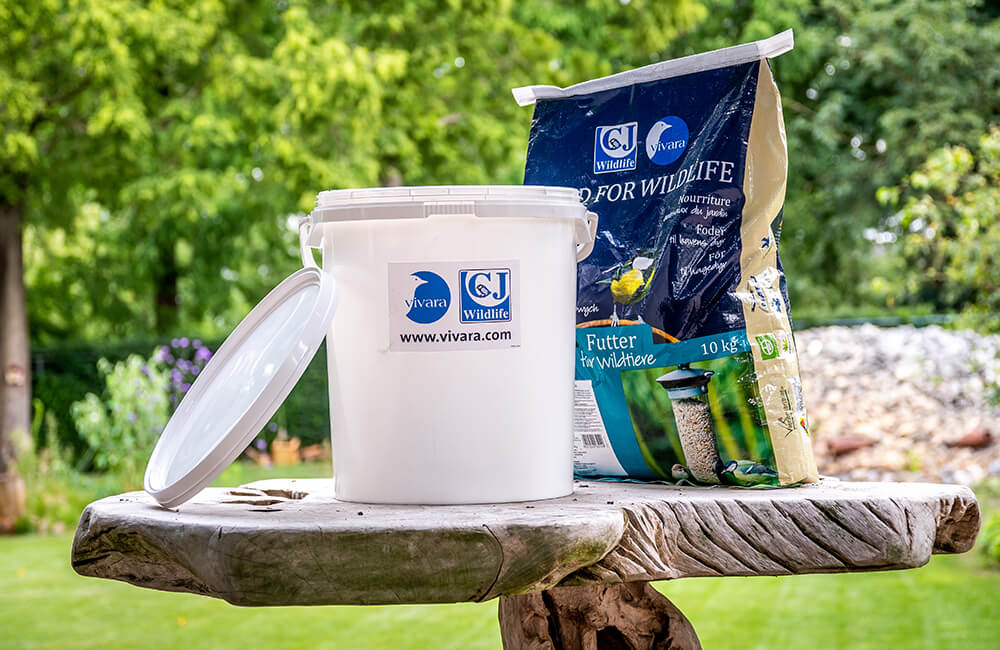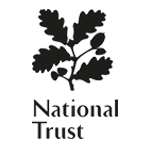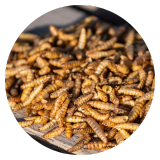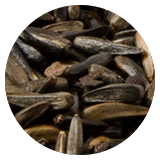Since 1987, we've built up a reputation for producing some of the best bird food on the market, something we're extremely proud of. Find out more about our products and the different ingredients we use in production.
- All our bird seed varieties are developed in collaboration with various national and international nature and animal protection organisations
- We always base our work on the specific needs of different bird species
- Our seed mixtures contain particularly high proportions of fats, oils, carbohydrates, minerals and vitamins.
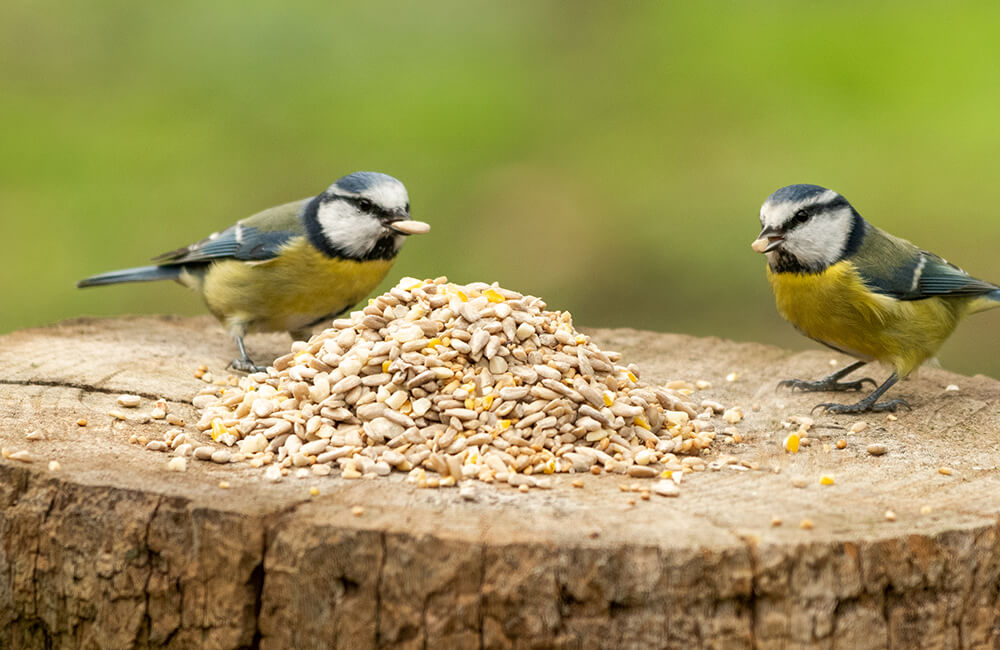

What are the advantages of high-quality bird seed?
When choosing high-quality food, avoid cheap fillers such as wheat grains, grass seeds and lentils. These are often added in large proportions, but have few nutrients and are poorly accepted by wild birds. These are therefore usually only eaten when all other seeds have been used up. As a result, large amounts of bird seed remain unused on the ground. We do without these cheap fillers.
In addition, using quality food is worthwhile as it ensures more safety for your feathered friends. In the case of cheap alternatives, there is no guarantee that they will not contain any invasive plant species such as the dangerous, allergenic ragweed.
Ambrosia – what’s the deal?
Ambrosia is a plant whose pollen can cause nasty allergies, and sometimes it spreads through bird food. We’re not taking any chances: all our seeds go through a double cleaning process so no Ambrosia seeds sneak in.What ingredients do we use for our seed mixes?
Only the very best food should be available for your garden birds. We have specialised in the production of our own feed mixtures and only select the highest quality components in order to offer your wild birds the best possible and, above all, the safest feed. Our birdseed is free from the allergy-causing plant ragweed. This is very common in birdseed. We practice a cleaning process to clean the feed. Due to the different weight of the seeds, it is possible to filter out the ragweed seeds. This enables us to ensure that the food we produce is suitable for safe bird feeding.
Peeled sunflower hearts
Shelled sunflower hearts offer an oil-rich and therefore high-calorie source of energy for your garden birds. The shell has already been removed by us, so your feeder stays clean and free of shells and weeds. For young birds you will also find chopped sunflower seeds without the shell in our range.
Black sunflower seeds
We chose black sunflower seeds because they have a higher oil content and are therefore more energetic for your feathered friends. Another advantage is that birds can peel them much more easily.
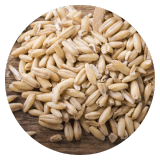

Oats
Oats are the most oily grain, making them particularly nutritious for your garden birds. Due to the soft texture of oatmeal, this ingredient is very popular with starlings, robins, blackbirds and thrushes.
Dried mealworms
Proteins are very important, especially during the breeding season. Mealworms have a protein content of 50%. Drying makes them last longer.
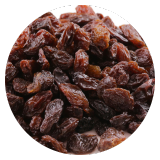

Raisins
Soft food lovers will find raisins in our feed mixtures. Robins, starlings, blackbirds and thrushes are crazy about it.


Broken (red) corn
In many of our feed mixtures you will find broken corn, it is one of the most commonly eaten types of grain and has significantly more calories than wheat. Red corn is even higher in calories than yellow corn. That is why we rely on this ingredient in some feed mixtures.
Peanuts
Our premium peanuts have a round, full shape. This indicates mature nuts with a high oil content. They contain the ideal amount of energy and protein.
Aflatoxins – what’s the deal?
Aflatoxins are another danger – toxins from mould that can kill birds. They develop in warm, damp conditions. Our peanuts are tested by independent labs and guaranteed aflatoxin-free. With our cleaning process, we achieve a purity of 99.5%.Nyjer seed
The fine, oil-rich nyjer seed comes from the ramtil plant and is particularly popular with goldfinches and siskins.
Nobody wants a mini compost heap under their feeder. Some CJ Wildlife mixes use already-shelled or broken seeds, so nothing drops that could start growing. A great example is our “High Energy No Mess” mix. Just look out for the “weed-free” symbol.
Do birds have favourite foods?
Absolutely! Every bird has its own tastes. The more variety you put out in your garden, the more different feathered friends you’ll attract. That’s why CJ Wildlife – together with nature and wildlife organisations – has developed a range of special mixes. Our food is tailored to what each species needs: plenty of fats, oils, carbs, minerals and vitamins.
Take our peanuts, for example – they’ve got about 2% more oil than regular ones, for a proper energy boost! Our black sunflower seeds are also among the richest in oil you’ll find. Rule of thumb: more oil means more nutrition and more energy for the birds.
We also avoid “filler” seeds like grass or lentils – they’ve got little nutritional value and are often ignored.
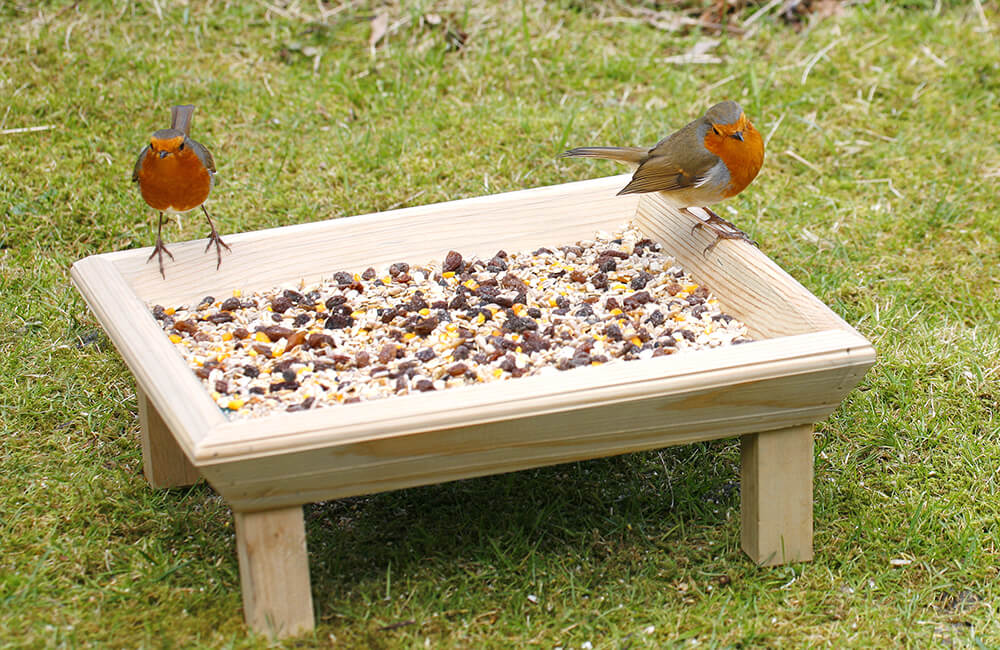

How to store bird food
Once opened, try to use your food within 3 months. Keep it cool (below 15°C), dry and sealed – a shed or cellar is perfect – and it’ll last 5–6 months. In feeders, swap out uneaten food for fresh after 10 days.
